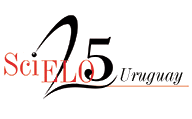Defining the indefinable. The method for knowing the existence of God according to Thomas Aquinas and the ‘unum’ argument of Anselm of Canterbury
DOI:
https://doi.org/10.25185/16.7Keywords:
Thomas Aquinas, Anselm of Canterbury, Proof of the existence of God, Natural knowledge of God, DefinitionAbstract
This paper sets out to defend the thesis of the little remarked similarity that exists in the writings of Thomas Aquinas and Anselm of Canterbury, through the analysis of the notion and use of nominal definition in natural or philosophical theology. In the third article of the sixth question of the Exposition of Boethius' “de Trinitate”, Thomas introduces the distinction between nominal definition and real definition in order to apply them to the knowledge of God. His argument is that, since he cannot be known directly, nor can he be given a real definition for this very reason, one must start from a nominal definition of what God is. Such a definition presupposes some knowledge of God, but negative, through the attributes of his effects and by eminence. The nominal definition of God serves, then, as the presupposition of the demonstration. In the Proslogion and in his Reply to the criticisms raised against him by Gaunilo in his time, Anselm agrees with this distinction of definitions, and that God cannot be known directly, unless by causation, negation or eminence. But, unlike Thomas, he sees that the nominal definition of God is sufficient to produce a ‘single argument which would need for its proof no other than itself, and which would suffice alone to assure us that God is in a true way’, since this is self-evident to us. This comparison also helps to understand Thomas‘ specific criticisms of Anselm's argument, notably that which denies that the knowledge of God is self-evident to us (’quoad nos").
Downloads
References
Anscombe, Elizabeth. “Por qué la prueba de Anselmo en el" Proslogion" no es un argumento ontológico”. Anuario Filosófico XV, nº2 (1982): 9-18
Anselmo de Canterbury. Proslogion. Traducido por Julián Velarde Lombraña. Madrid: Tecnos, 2009.
Aristóteles. Física. Traducido por Guillermo R. de Echandía. Madrid: Gredos, 1995.
Aristóteles. Tratados de lógica (Órganon), tomo II. Traducido por Miguel Candel Sanmartín. Madrid: Gredos, 2008.
Barrio Maestre, José María. “¿Es evidente a priori la existencia de Dios? La crítica tomista al argumento ontológico”. Revista de Filosofía 11, n° 20, (1994): 1-22.
Beuchot, Mauricio. “El argumento “ontológico” de San Anselmo”. Medievalia, nº 15 (1993): 24-31.
Eadmer. The life of St. Anselm. Editado y traducido por Richard William Southern. London: Thomas Nelson and Sons, 1962.
Fabro, Cornelio. Drama del hombre y misterio de Dios. Rialp: Madrid, 1977.
Ferro, Luis Santiago. La Sabiduría Filosófica, siguiendo las huellas de Santo Tomás: segunda parte. San Miguel de Tucumán: UNSTA, 2015.
Garay, Ignacio. “Argumento Ontológico”. En Diccionario Interdisciplinar Austral, editado por Juan F. Franck y Claudia E. Vanney, 2017: http://dia.austral.edu.ar/Argumento_ontológico
Garay, Ignacio. “Santo Tomás y Crusius, frente a Kant y a los racionalistas. El trasfondo metafísico de sus objeciones contra el argumento ontológico”. Espíritu. LXXI, n° 164 (2022): 303-323.
Gilson, Étienne. El espíritu de la filosofía medieval. Madrid: Rialp S.A., 2009.
Gilson, Étienne. El Tomismo, Introducción a la filosofía de Santo Tomás de Aquino. Traducido por Fernando Múgica. Pamplona: Ediciones Universidad de Navarra, 1989.
Gilson, Étienne. La filosofía en la Edad Media. Traducido por Arsenio Pacios y Salvador Caballero. Madrid: Gredos, 1976.
Kant, Immanuel. Crítica de la Razón Pura, traducido por Mario Caimi. Buenos Aires: Colihue, 2007.
Logan, Ian. Reading Anselm’s Proslogion: The history of Anselm’s argument and its significance today. New York: Routledge, 2016.
Marion, Jean-Luc. “¿Es el argumento ontológico realmente ontológico? El argumento sobre la existencia de Dios según san Anselmo y su interpretación metafísica en Kant”. Traducido por Oscar Figueroa. Tópicos, nº32 (2007): 179-205.
Méndez, Julio Raúl. “Santo Tomás y el insensato”. En Dios es espíritu, luz y amor - homenaje a Ricardo Ferrara, editado por Carlos M. Galli y Víctor M. Fernández. Buenos Aires: Facultad de Teología UCA, 2005: 560-578.
Oppy, Graham, Rasmussen, Joshua y Schmid, Joseph. “Ontological Arguments”. En The Stanford Encyclopedia of Philosophy, editado por Edward N. Zalta & Uri Nodelman, 2024 https://plato.stanford.edu/archives/sum2024/entries/ontological-arguments/
Rocca, Gregory P. OP. Speaking the incomprehensible God, Thomas Aquinas on the interplay of Positive and Negative Philosophy. Washington D.C.: Catholic University of America Press, 2004.
Rovira, Rogelio. La fuga del no ser. Madrid: Encuentro, 1991.
Tomás de Aquino. Comentario a los Analíticos Posteriores de Aristóteles. Traducido por Ana Maella y Marta Daneri-Rebok. Barrañáin: Ediciones Universidad de Navarra S.A. 2002.
Tomás de Aquino. Cuestiones disputadas sobre la verdad: tomo I. Editado por Ángel Luis González, Juan Fernando Sellés y Mª Idoya Zorroza. Navarra: Ediciones Universidad de Navarra S.A., 2016.
Tomás de Aquino. Exposición del “de Trinitate” de Boecio. Editado y traducido por Alfonso García Marqués y José Antonio Fernández. Pamplona: Ediciones Universidad de Navarra S.A., 1987.
Tomás de Aquino. Expositio super Librum Boethii de Trinitate. Editado por Bruno Decker. Lieden: E. J. Brill, 1955.
Tomás de Aquino. Opera omnia. Revisado y editado por Enrique Alarcón. Pamplona: Universidad de Estudios de Navarra, 2000: https://www.corpusthomisticum.org/.
Tomás de Aquino. Suma contra Gentiles. Edición dirigida por Laureano Robles Carcedo OP y Adolfo Robles Sierra OP. Madrid: Biblioteca de autores cristianos, 2007.
Tomás de Aquino. Suma Teológica, Tomo I. Editado por Fr. Francisco Barbado Viejo OP. Madrid: Biblioteca de Autores Cristianos, 1964.
Torrel, Jean-Pierre OP. Saint Thomas Aquinas Vol.1: the person and his works. Traducido por Robert Royal y Matthew K. Minerd. Washington DC: Catholic University of America, 2023.
Twetten, David B. “To which “God” must a proof of God´s existence conclude for Aquinas?”. En Laudeamus viros gloriosos: Essays in honor of Armand Maurer CSB, editado por Rollen Edward Houser, 146-183. Notre Dame, Indianda: University of Notre Dame Press 2007.




























 This work is under a
This work is under a 